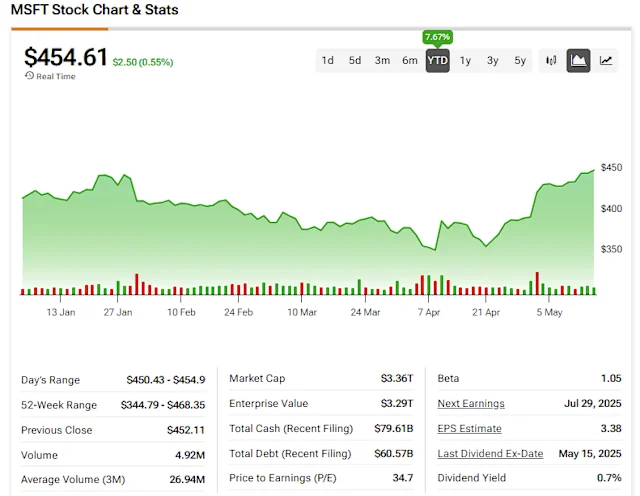
Microsoft’s AI Power Play: ‘Tenant Copilot’ and ‘Agent Factory’ Unveiled at Build 2025?
Microsoft is gearing up for its annual Build developer conference next week, and the buzz is all about artificial intelligence. Leaks suggest the company is planning some major announcements, including a new "Tenant Copilot" and an ambitious "Agent Factory" concept. But what do these developments mean for users and the future of AI at Microsoft?
According to an internal memo viewed by Business Insider, Microsoft is developing new ways for businesses to manage AI agents alongside their human employees. This initiative is spearheaded by Satya Nadella's appointee, Jay Parikh, former head of engineering at Facebook, who now runs the CoreAI Platform and Tools group. The memo details a "Tenant Copilot" designed to deeply integrate with Microsoft 365, channeling an organization's knowledge to essentially "talk, think, and work" like the company itself.

The "Tenant Copilot" leverages various AI techniques, including supervised fine-tuning, OpenAI's o3 reasoning model, and "agentic" fine-tuning, all aimed at empowering it to perform real-world tasks. This would potentially give the Copilot access to sensitive customer data stored within Microsoft 365 accounts, raising questions about privacy and security protocols.
Parikh's "Agent Factory" concept, a nod to Bill Gates' vision of Microsoft as a “software factory,” underscores the company's commitment to embedding AI in every aspect of its operations. This involves cross-organizational collaboration, integrating AI agents with security services like Entra and Intune, and deploying them across platforms like LinkedIn, Dynamics, and Microsoft 365.
One crucial aspect of this AI-driven future is managing AI agents alongside human employees. Microsoft is reportedly working on identity management systems for AI agents, similar to those used for human users. This indicates a move towards treating AI assistants as digital teammates, with controlled access to applications and data.
Microsoft's Build 2025 is also expected to showcase advancements in Azure AI, potentially including next-generation AI tools and hardware like a second-generation Maia AI chip. This would solidify Azure's position as a leader in cloud-based AI services and reduce reliance on external AI model providers, improving long-term profitability.
Analysts predict that Microsoft's AI initiatives represent a significant opportunity for revenue and margin expansion. The Microsoft 365 Copilot, a $30-per-user-per-month add-on, could generate billions in incremental annual revenue with even modest adoption rates. Recent quarterly results show Azure expanding by approximately 33%, with half of that growth attributed to new AI services.
The Microsoft Build 2025 keynote will be streamed live on Microsoft's website and YouTube, hosted by CEO Satya Nadella and CTO Kevin Scott. Viewers can expect to hear about how Microsoft plans to create new opportunities across its platforms in the age of AI.
Will Microsoft's AI-driven innovations truly revolutionize the workplace, or will they raise more questions than answers? What are your thoughts on the "Tenant Copilot" and "Agent Factory" concepts? Share your predictions and concerns in the comments below!